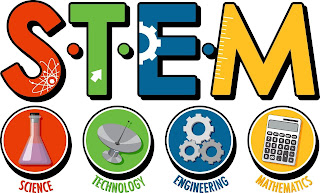STEM occupations are growing at 24 percent while other occupations are growing at 4 percent.
STEM degree holders have a higher income even in non-STEM careers. Science, Technology, Engineering, and Mathematics workers play a key role in the sustained growth and stability of the economy and are a critical component to help the nation win the future. STEM education creates critical thinkers, increases science literacy, and enables the next generation of innovators.
Innovation leads to new products and processes that sustain our economy. This innovation and science literacy depends on a solid knowledge base in the STEM areas. Most jobs of the future will require a basic understanding of Math and science. Despite these compelling facts students in most countries of the world are lagging behind in their mathematics and science scores. Here's how STEM education can be so important to young students.
What is STEM?
STEM stands for Science, Technology, Engineering, and Mathematics. STEM is important because it pervades every part of our lives. Science is everywhere in the world around us. Technology is continuously expanding into every aspect of our lives. Engineering is the basic design of roads and bridges but also tackles the challenges of changing global weather and environmental-friendly changes in our homes. Mathematics is in every occupation and almost in all human activities.
By becoming exposed to STEM and having the opportunities to explore STEM-related concepts, you will develop a passion for it and pursue a job in a STEM field. STEM education provides real-life situations to help you.
Why STEM Education?
In the 21st century, scientific and technological innovations have become increasingly important as we face the benefits and challenges of both globalization and a knowledge-based economy. To succeed in this new information-based and highly technological society, you need to develop your capabilities in STEM. STEM education provides you with a well-rounded foundation of skills to help you understand a wide range of concepts and thrive in many industries.
What are the essential skills for STEM?
The basic skills you need for a STEM education or career include the following;
i. Mathematics and science skills.
ii. Inquiry skills.
iii. Creativity skills.
iv. Problem-solving skills.
v. Engineering Design Thinking skills.
vi. Critical thinking skills.
vii. Collaborative or Teamwork skills.
Who benefits from STEM?
STEM education helps to bridge the ethnic and gender gaps sometimes found in Maths and Science fields. Initiatives have been established to increase the roles of women and minorities in STEM-related areas. STEM education breaks traditional gender roles. To compete in a global economy, STEM education, and careers must be a national priority. Each and every decision made uses an aspect of STEM to understand the implications.
In conclusion, STEM education is critical to help you remain significant in our changing world.
Tags:
Education
EDUCATION: STEM; USING STEM EDUCATION TO STEP INTO THE FUTURE
Futue
STEM
teenager
using
youth

